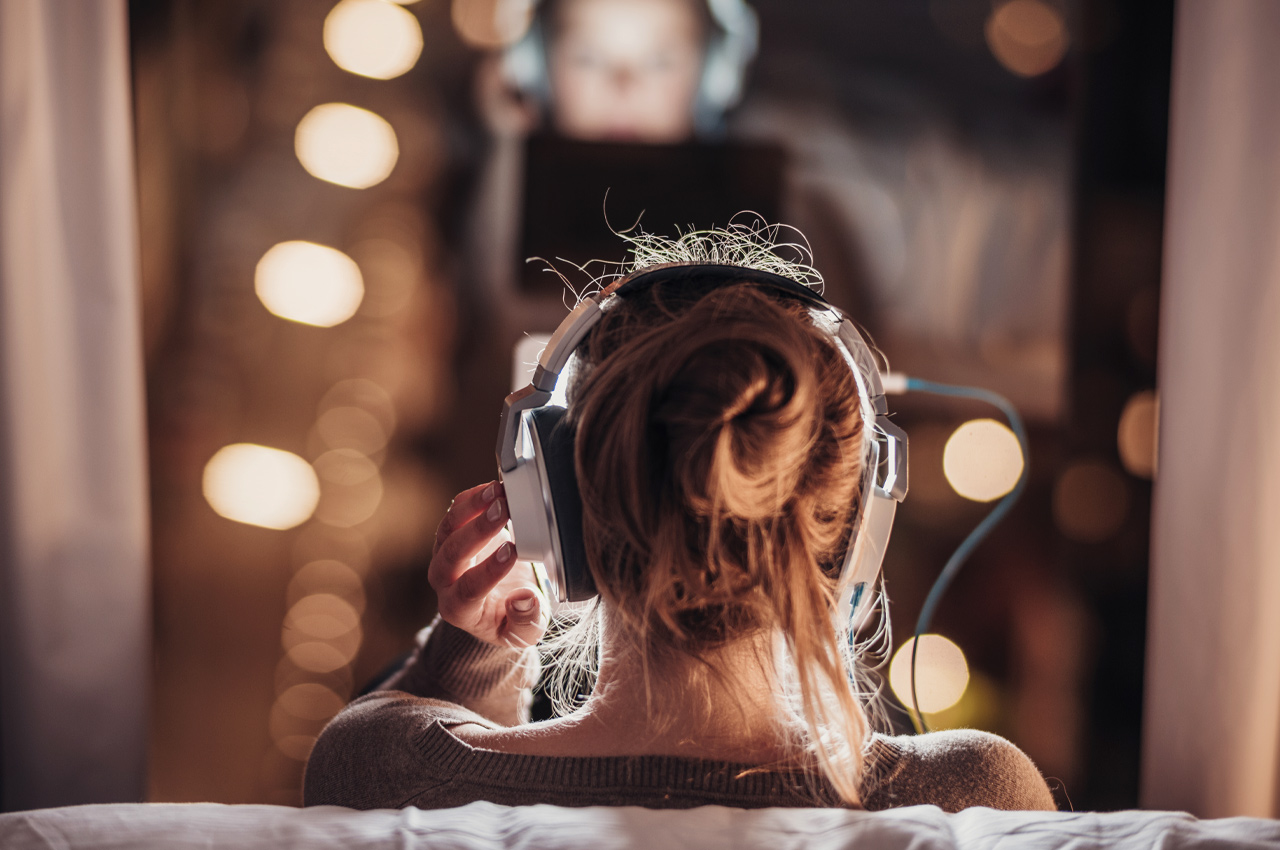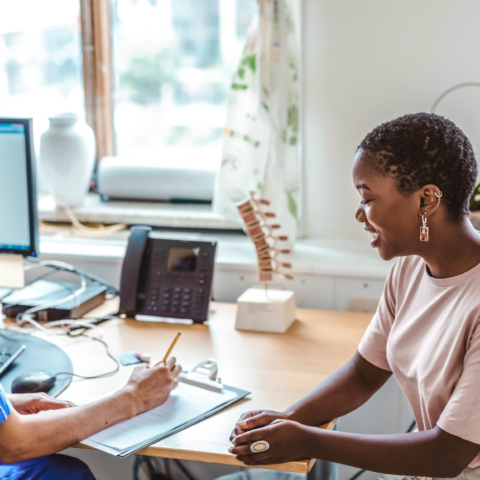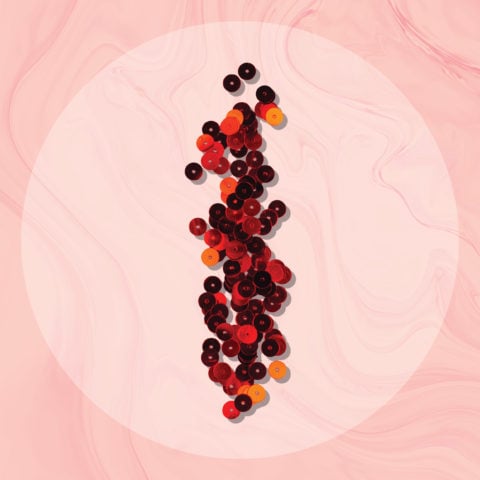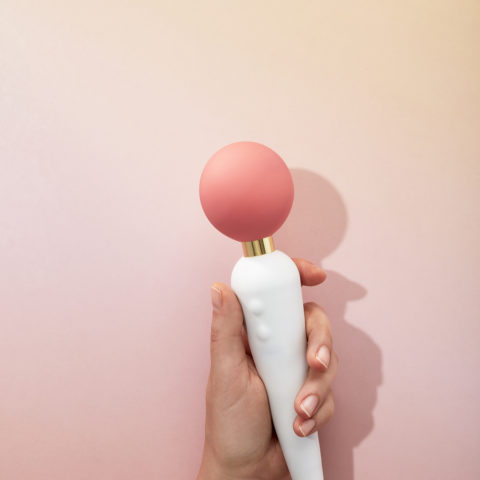Audio Erotica Is the Latest Self-Care Tool For Women
And we’re all ears
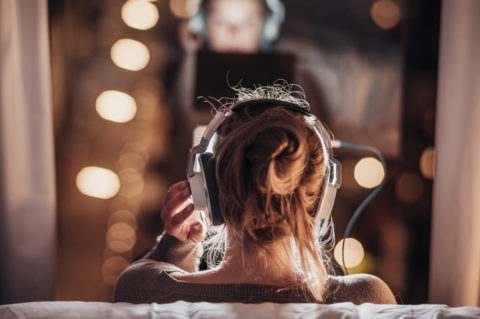
Gina Gutierrez was using the meditation app Headspace when she realized “audio immerses me so deeply, it actually changes how I feel,” and thought maybe the aural realm could be tapped into for other purposes, too. As a former psychology student, Gutierrez has always been interested in the mind’s involvement in sex, beyond the body-focused way people usually talk about their experiences. It’s what led her to co-found the erotic story studio Dipsea.
While drinking wine with friends in their kitchen, including her co-founder Faye Keegan, Gutierrez realized that there wasn’t much pornography on the internet that made them feel good. She found out that, to get turned on, some reached for the same book with a hot passage they’d stumbled upon in Grade 12 or pulled up a random scene in an episode of Outlander. Gutierrez and Keegan recorded their first stories in that same kitchen, posted them to a Squarespace website and shared it with 200 people. The next day, the number of listeners shot up to 1,200—Dipsea now has 400,000 downloads to date and that’s still growing fast. Self-isolation has led to a serious bump in traffic of their narrated stories and new guided sessions, like edging exercises, dirty talk lessons and BDSM how-tos.
Sexuality is the latest frontier of the ever-booming wellness industry, and apps and podcasts disseminating sex-positive tutorials, audio erotica and documentary stories from everyday people are redefining the way many consume adult content. A considerable change with these new experiences is that they’re woman-led and often created with female-identifying and non-binary folks in mind, moving away from the male gaze-centric porn that still makes up the megalithic mainstream.
A big part of this shift is recategorizing the way we think about sex from being something illicit that could fit in a similar box as alcohol, drugs and gambling, to a factor that impacts our overall health, akin to exercise, mindfulness and eating your greens. Andrea Oliver Garcia, the founder of Barcelona-based intimate well-being guide Emjoy, first set out to focus on sexual wellness because of personal experiences and surprising stats, like up to 40% of women have difficulty reaching orgasm. Though problems related to female pleasure are widespread, the founder learned from sex therapists that it can take over five years for people experiencing them to seek help because of shame or embarrassment. Because she’s focused on making all her well-being tutorials as science-based as possible, Oliver Garcia was shocked at how few studies about human sexuality are available, so she relied heavily on experts. When signing up, Emjoyers set goals like increasing self-esteem or practising mindful sex. Then they do the most fun homework ever and browse tutorials about figuring out what gives them pleasure or how to better communicate their needs, before diving into the fiction section to learn about what turns them on or just to get some good old-fashioned enjoyment.
The reason entrepreneurial women are deciding to opt for audio, as opposed to video, is no coincidence either. As the co-creator of Quebec’s sex-focused documentary podcast Ferry, Sylvianne Rivest-Beauséjour, puts it, “voice is so intimate, it’s close to thought.” However, it’s more than just the proximity of a seductive voice leading us through erotic scenarios that gets women going. Gutierrez points to a study by the Kinsey Institute in which they found that “90% percent of women use scenario conjuring to get turned on—what they call framing, meaning they’re using their minds to activate arousal.” The majority of us enjoy letting our imaginations take the reins when we get down and dirty, and there’s little room for this more active participation when watching visuals packed with porn-ready bodies and money shot close-ups. Both Emjoy and Dipsea are intentional about the type of erotic stories they’re creating too, doing away with cliché, tacky or demeaning tropes in favour of focusing on real-life scenarios that listeners can relate to. To identify what users are looking for, staffing is key. As Oliver Garcia points out, “if you haven’t lived these things first-hand, it’s hard to relate. That’s why I think more […] founding teams are women,” and aside from three developers her crew of 12, including story writers, in-studio engineers and well-being content creators, are all female.
This tune-in format is also opening up new career paths for women, whether that’s in writing sex-positive stories for apps, voice acting or learning to use sound editing software on the fly. Ferry’s co-creator Catherine Lavoie corresponds to the latter group and was editing the podcast together herself before its second season was picked up by Radio Canada to be broadcast to the general public. The Ferry duo’s aim is different from the app producers’: They wanted to highlight positivity in everyday sexuality with a documentary style that normalizes conversations around adult subject matter that rarely gets talked about openly. They worked to start a real “dialogue, to awaken people’s consciousness and show what consent, reciprocity and sexual pleasure can sound like in a positive, non-didactic way.” Now that the podcast lives on Radio Canada’s website permanently and they won a NUMIX podcasting prize in 2018, it’s safe to say their efforts have paid off.
Who gets to participate is also being rethought in audio erotic world, with inclusivity baked into both the payroll and behind the earbuds. Though the majority of Emjoy’s usership is made up of cis gender women between the ages of 25 and 35, they’re constantly evolving to meet user needs and desires, like when they recently took feedback from a transgender woman to tweak some of the language and use the word genitals instead of vagina, or by creating sexy scenarios that include non-binary characters. As for the sultry voices you’ll hear over at Dipsea, Gutierrez says that this narrated format allows them to “provide opportunity and payment to a lot of marginalized communities, and we can have a huge portion of our talent network be disabled,” showing how this growing field can employ people who might have a harder time getting other types of acting jobs.
Developments don’t mean that sexuality isn’t still hugely taboo, though. It’s something all these founders and content creators have been faced with. Though slow, they do see a change happening and they’re all trying to bolster it through more open communication, dialogue and listening. Oliver Garcia says that, by looking at Emjoy’s data and conducting phone interviews, she knows that a lot of her user base is women from “conservative backgrounds searching for a solution like ours, [and they might] follow sexuality or body-positive accounts” on social media. Women who are more liberal or comfortable with their sexuality also download Emjoy because they’re intrigued or have never seen something like this before that caters to their curiosities and desires without judgment or shaming.
As women start creating the sex-positive, consensual erotica we might imagine acting on in our own lives, we finally have models and references for what healthy sexual culture could be. Storytelling has always been a form of learning and, now, it’s helping us bridge the gap between our fantasies and realities in leading by example.

